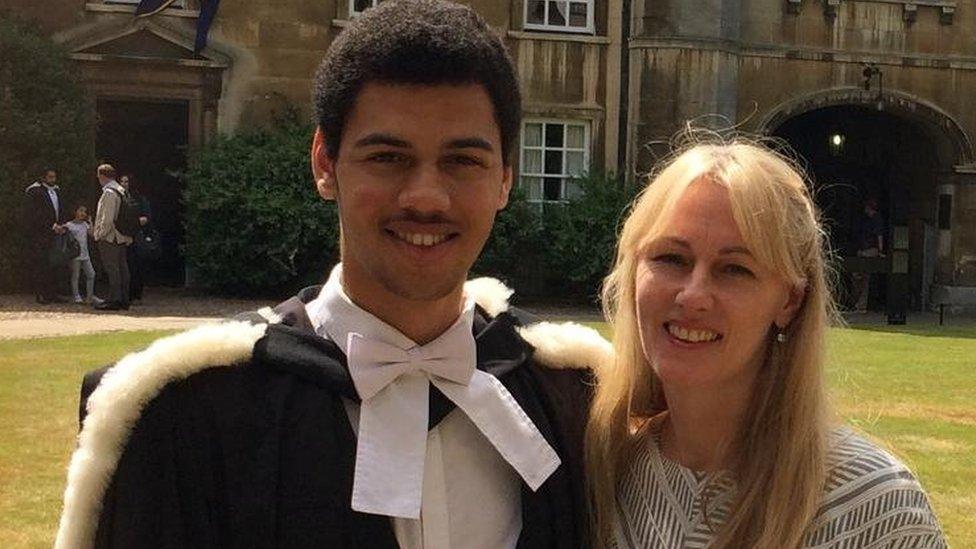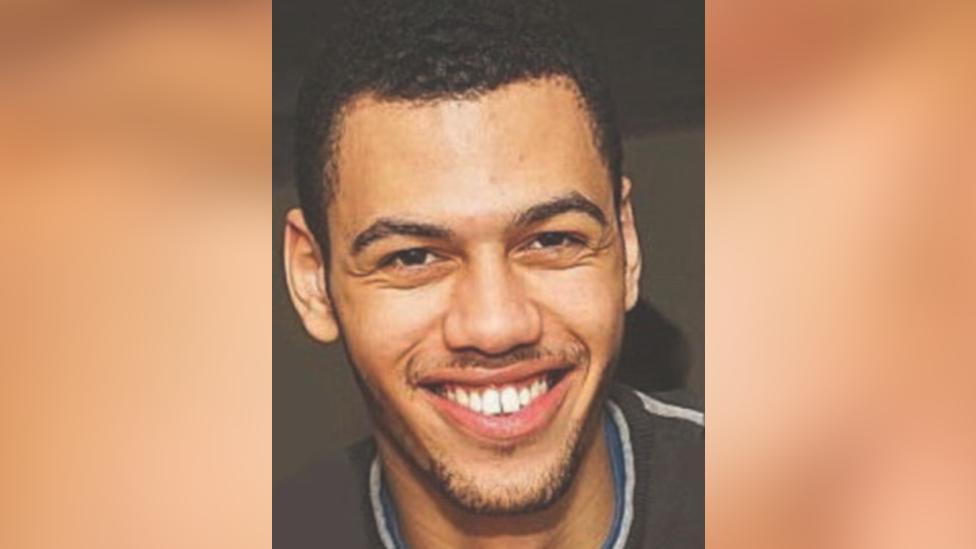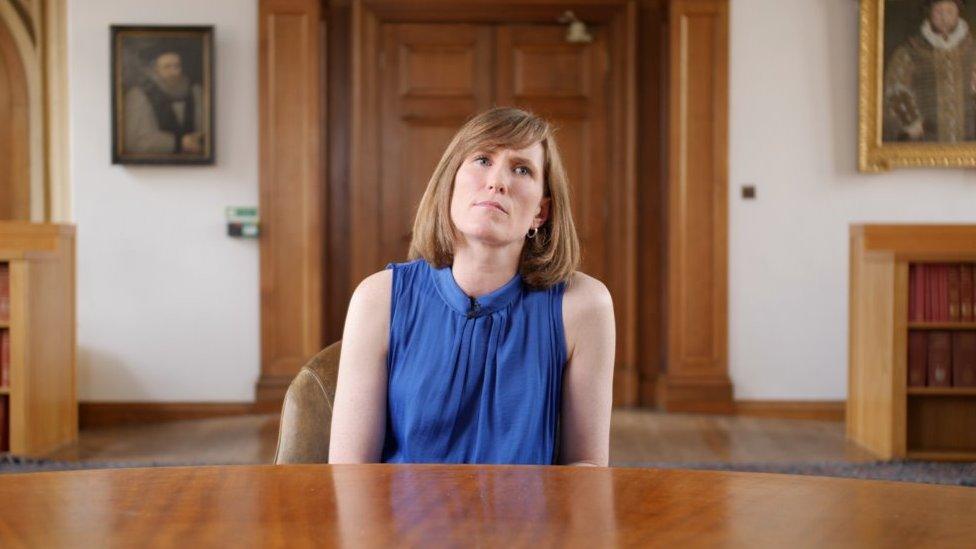Cambridge University saw my son as a problem, says bereaved mum
- Published

Jo Ndisang said after her son Jared's death she wanted universities to "respond in a compassionate way to those who are struggling"
A bereaved mother said she believed Cambridge University wanted to move the "problem" on after her son developed mental health issues.
Jo Ndisang said her son Jared was not given the option to take a break when he became unwell in his third year.
He died a year later in 2019, aged 21, and his mother said universities should "respond in a compassionate way to those who are struggling".
The university said "nothing is more important" than safety and wellbeing.
An inquest this month found Mr Ndisang's death "was caused by sudden cardiac death of undetermined cause", leaving his mother with remaining questions.
Ms Ndisang, from London, and is part of the Learn Network, external of bereaved families aiming to prevent future deaths.
On Tuesday, she and other members are due to hand in a petition, signed by more than 128,000 people, to Downing Street, calling for the creation of a statutory duty of care for students in higher education.
If you are feeling emotionally distressed, help and support is available via BBC Action Line
In March 2018, Ms Ndisang said she noticed her son, a natural sciences student at Christ's College, was not himself.
When he went back to university for his exams, she said she would ring him each morning and night.

Jared Ndisang died in 2019
But towards the end of May, he became very unwell and Ms Ndisang said she came to take him home.
She said after this the university organised for her son to see a psychiatrist and had a meeting with his tutor, where Mr Ndisang asked if he could intermit, a term used for a break in studies.
"But it wasn't an option and they strongly encouraged Jared to graduate," she said, with her son being given an unclassified degree.
"That was how it went and that's not what Jared wanted. It was his dream to go to Cambridge and he'd worked so hard. And as you can imagine it just seemed to exacerbate the problem.
"So I spent the next months just convincing Jared 'your path's changed, it's not a problem, if you want to go back to university later, you can do that'. However, I think Jared just couldn't get past it."
Mrs Ndisang said "no reason was given" as to why intermission was refused "but it was very clear intermitting was not an option".
"I got the feeling like they wanted to move the 'problem' on," she said.
She said she believed her son had five sessions of counselling at university.

The university's mental health services were previously criticised in a review it commissioned
In 2021, the university's mental health services were found to be "ineffective", "untargeted" and "unsustainable" by a review it commissioned, despite being one "of the biggest spenders on student mental health and wellbeing support in the sector".
Ms Ndisang believes that "a student's mental health should be considered at every decision made, along their student journey".
Asked what she would like Cambridge to learn from her son's case, she said: "Each student death has valuable lessons for higher education leaders.
"Each life is unique and each story is different but there is learning and we must insist on learning.
"We can't stop mental-ill health and we can't stop life events which impact on us all. But we can control our own actions and respond in a compassionate way to those who are struggling.
"There needs to be mechanisms and systems in place. There's an obvious problem. Over 100 students in higher education die each year and we just want to know what are our higher education leaders doing?"
Last year six Cambridge University students died by suicide or suspected suicide between March and September.

Natalie Acton has previously said the university had seen "unprecedented" increases in students coming to Cambridge with mental health problems
In response to Ms Ndisang's comments, Cambridge's head of student support, Natalie Acton, said: "Jared is remembered as an active and caring member of our community and our thoughts remain with his family and friends.
"Nothing is more important than the safety and wellbeing of our students and we have recently launched a new student mental health and wellbeing plan which includes swifter access to counselling, increased capacity in our support services and our Reach Out campaign to ensure students know where to find help.
"Like all universities we are exploring the best way to work with trusted contacts for each student. This process must strike a balance between protecting the privacy of our students and ensuring they have the right support."
A Department for Education spokeswoman said: "We expect all universities to take active steps to prevent suicides. We are working closely with charities and the sector to promote and fund effective mental health support such as the free Student Space online service.
"We are committed to the wellbeing of students and our first ever student support champion, Edward Peck, has been speaking to bereaved parents to understand where further improvements can be made."

Find BBC News: East of England on Facebook, external, Instagram, external and Twitter, external. If you have a story suggestion email eastofenglandnews@bbc.co.uk
Related topics
- Published9 August 2022

- Published11 July 2022

- Published10 October 2022
